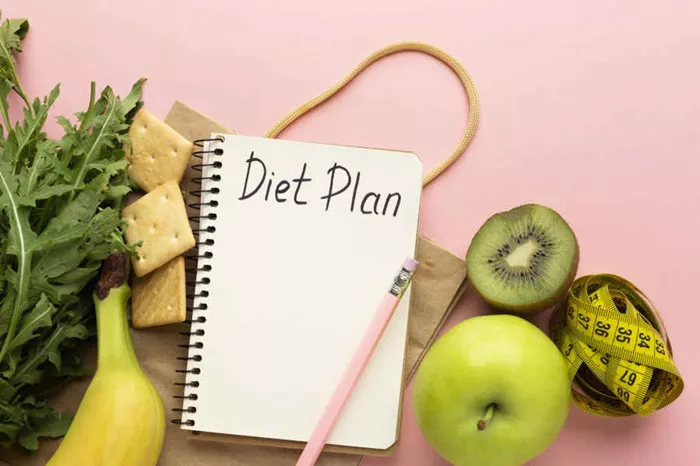A 1700-calorie diet is an effective nutritional plan for many people aiming to lose weight, maintain muscle, or achieve long-term health goals. It strikes a balance between sufficient energy intake and a moderate calorie deficit, especially for moderately active women or sedentary men. Whether your aim is to build lean muscle, maintain current weight, or reduce body fat slowly, this plan provides a framework for success. The key is to choose high-quality foods that nourish the body while keeping calories in check.
Who Should Follow a 1700-Calorie Diet?
This diet is typically suitable for:
- Women aiming for gradual weight loss
- Men with sedentary lifestyles trying to maintain weight
- Older adults who need fewer calories but more nutrition
- Anyone looking to reset their eating habits with a structured plan
It is important to consider individual needs. Age, activity level, muscle mass, and metabolism all affect how effective this calorie range will be for you. Consulting with a nutritionist or fitness expert before beginning is always recommended.
Understanding Macronutrient Balance
When designing a 1700-calorie diet, balance among the three main macronutrients—protein, carbohydrates, and fats—is essential. Here’s a simple guideline:
- Protein: 25–30% of total calories (approximately 110–130g)
- Carbohydrates: 40–50% of total calories (approximately 170–210g)
- Fats: 20–30% of total calories (approximately 40–55g)
Proteins are vital for muscle maintenance and satiety. Carbohydrates provide energy, especially for brain function and workouts. Fats support hormone production and nutrient absorption.
Meal Planning for a 1700-Calorie Day
A structured daily plan makes staying on track easier. Below is a sample meal structure based on a 1700-calorie intake.
Breakfast (350–400 calories)
- 2 boiled eggs
- 1 slice of whole-grain toast with avocado
- 1 small banana or ½ cup berries
- Black coffee or green tea (no sugar)
Mid-Morning Snack (150–200 calories)
- Greek yogurt (low-fat, unsweetened)
- 1 tbsp chia seeds or a few almonds
Lunch (450–500 calories)
- Grilled chicken breast or tofu (100–150g)
- 1 cup cooked quinoa or brown rice
- Steamed mixed vegetables with olive oil drizzle
Afternoon Snack (150–200 calories)
- Apple slices with 1 tbsp peanut butter
Dinner (400–500 calories)
- Baked salmon or lentil patties
- Sweet potato (100g)
- Side salad with lemon vinaigrette
This plan includes about 100–120g protein, 160–200g carbs, and 45–50g fats, aligning well with fitness goals and providing enough fiber and micronutrients.
Best Foods to Include Daily
Eating nutrient-dense foods ensures satiety and health. Focus on:
- Lean Proteins: Chicken, turkey, tofu, legumes, fish
- Whole Grains: Oats, brown rice, quinoa, barley
- Healthy Fats: Avocados, nuts, seeds, olive oil
- Fruits and Vegetables: A wide variety for fiber and antioxidants
- Dairy or Alternatives: Greek yogurt, plant-based milks with calcium
Foods to Limit or Avoid
To make a 1700-calorie diet effective, limit:
- Refined sugars and processed snacks
- Sugary beverages like soda or energy drinks
- Deep-fried foods
- White bread and pastries
- Processed meats high in sodium and nitrates
These items can quickly add empty calories, disrupt blood sugar, and lead to cravings.
Post-Workout Meal Suggestions
Exercise increases your energy and nutrient needs. After working out, focus on a combination of protein and carbohydrates to repair muscle and replenish glycogen.
Some great Healthy Gym Meals include:
- Grilled chicken with brown rice and broccoli
- Protein smoothie with banana and almond butter
- Scrambled eggs with sweet potato and spinach
Tips to Stay Within 1700 Calories
Here are practical tips to maintain your calorie goals:
- Use a kitchen scale for portion control
- Track meals with apps like MyFitnessPal
- Drink water before meals to reduce overeating
- Cook at home to control ingredients
- Choose lean cuts and grill instead of frying
1700 Calories and Fitness Goals
A 1700-calorie diet can support muscle building or fat loss when combined with the right workout plan. Whether you’re doing strength training, HIIT, or walking daily, your body needs quality fuel. This type of structured eating is especially effective when combined with a fitness Dietikon approach that aligns food with physical activity.
Always listen to your body. If you feel fatigued, hungry, or unable to recover, your caloric intake might be too low for your training volume.
Common Mistakes to Avoid
- Skipping meals to save calories
- Relying on low-calorie but nutrient-poor foods
- Eliminating entire food groups without reason
- Forgetting hydration—water supports digestion and metabolism
Customizing the 1700-Calorie Plan
Every person is unique. If you are taller, more active, or breastfeeding, you may need more than 1700 calories. On the other hand, those with slower metabolisms or recovering from illness may do well on slightly fewer. Adjust meal sizes slightly, but retain the overall balance of macronutrients. Your plan should match your energy output, hunger cues, and goals.
Conclusion
A 1700-calorie diet is a smart choice for those wanting balance, nourishment, and structure. With the right combination of lean proteins, complex carbs, and healthy fats, this plan fuels your day, supports workouts, and helps manage weight effectively. It’s not about restriction—it’s about eating with purpose. Small adjustments and consistent habits can lead to long-term wellness and body confidence.
Start with whole, real foods. Stay active. Listen to your body. Your 1700-calorie journey can be both satisfying and sustainable.
Related Topics:
What Should I Eat in Calories a Day to Stay Healthy


